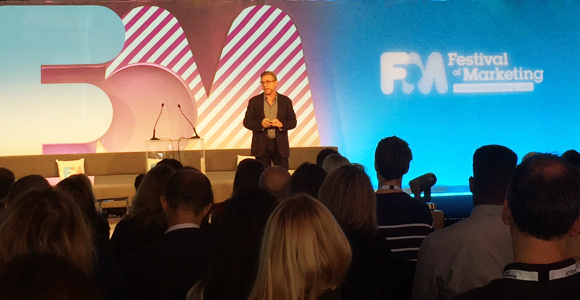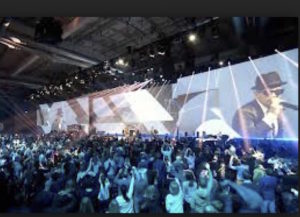How the digital world is taking over business
Marketing never stays still. Robert Hamilton-Jones returns to the city of his birth to find out how digital technology is raising customers’ expectations to new heights.
 ‘It’s no longer about digital marketing; it’s about marketing in a digital world.’ So argued the keynote speaker at the 2016 edition of the Festival of Marketing, Keith Weed. The festival was held in London’s Docklands last month.
‘It’s no longer about digital marketing; it’s about marketing in a digital world.’ So argued the keynote speaker at the 2016 edition of the Festival of Marketing, Keith Weed. The festival was held in London’s Docklands last month.

Weed is head of marketing and communications at the multinational Unilever, which owns many of the world’s most recognisable consumer brands. He was making the point that digital technologies have utterly transformed the business landscape.
It may be true from his perspective as a global brand manager, but how relevant is it to Papua New Guinea and the Pacific Islands?
‘No longer are we in an economy of products and services, experiences are what matter.’
The transformation is less advanced, but it is undeniably occurring. It can be seen, for example, when customers check in for a flight with Air Niugini online, or bank via the BSP phone app.
High-end hotels and restaurants in PNG are as conscious of Tripadvisor reviews as their counterparts anywhere else. Retail businesses are coming to terms with the opportunity social media provides their customers to provide instant ‘feedback’.
The experience economy
Jamie Brighton, UK marketing executive for US software giant Adobe, told the festival that one of the consequences of this process was that the customer experience becomes paramount.

‘No longer are we in an economy of products and services: experiences are what matter,’ he said. ‘Companies are using all the data they have about their customers to engage with them in real time. The challenge is to delight the customer at every turn.’
But surely businesses have always set out to delight their customers? What has changed?
The point is that customers’ expectations have never been higher. So, the onus is on companies to leverage the technology and data at their disposal to differentiate themselves.
In practice, that means creating a personalised, compelling customer experience at every touchpoint, from websites and mobile apps to retail environment—or risk being ‘disrupted’ by a competitor who does.
Moreover, the bar is constantly rising: ‘A five star experience today is tomorrow a one star take-it-or-leave it experience,’ notes Brighton.
B2B
What about in the business-to-business space? Is it entering the ‘experience era’ as well, or do the same old rules still apply?
According to an excellent presentation from British Telecom (BT), B2B decision-makers should be treated in exactly the same way as regular consumers (B2C).
‘Smart B2B marketers need to understand what really motivates their prospective customers.’
A rational argument is not necessarily the most powerful tool in B2B. ‘In fact, it’s the opposite,’ BT marketing executives Claire Sadler and Zaid Al-Qassab explained. They said that even when making decisions on behalf of their company, an individual’s own personal agenda was typically twice as influential in their decision as the interests of their employer.
A common example of this is someone who selects an airline or hotel for a company business trip because they are members of its loyalty program, regardless of price. Smart B2B marketers need to understand what really motivates their prospective customers.
Case study
The BT case study was based on their award-winning ‘#seewhathappens’ B2B campaign. This celebrated the power of relationships in business by appealing to its audience on an emotional level, rather than putting forward rational arguments.
The campaign’s execution included this simple but feel-good video.
BT’s campaign offers the chance for decision-makers and influencers to attend a unique series of regional business networking sessions around the UK, held in partnership with national broadsheet, The Daily Telegraph.
Now, doesn’t that sound like a great experience?
